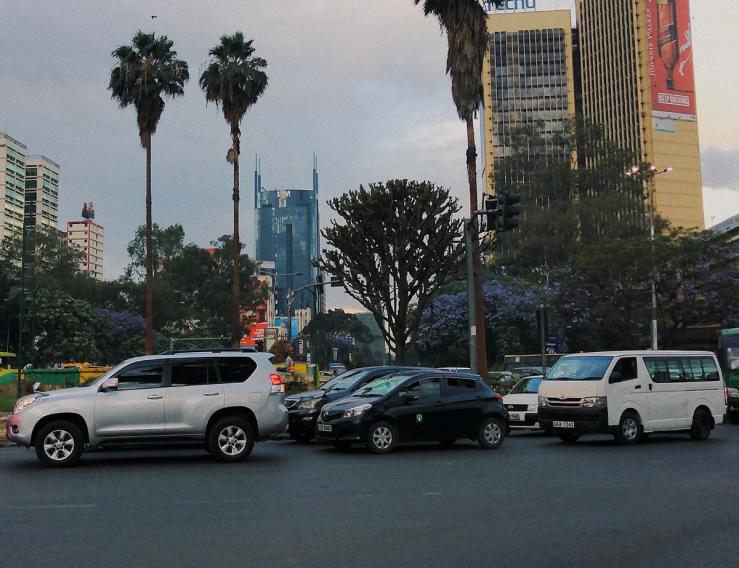The News
NAIROBI — Ride-hailing giants Uber and Bolt have raised their fares in Kenya amid pressure from drivers using the platforms, who are organizing themselves systematically to undercut the companies.
Bolt announced a 10% increase to its fees in Kenya, barely a week after Uber announced a similar 20% price hike in the country. Little App, which also offers ride-hailing services in Kenya, last week announced a 15% price hike.
Soaring operational costs including the cost of fuel have led frustrated drivers in Kenya to organize against the apps in recent months, putting them under pressure to raise prices. Some taxi operators have resorted to offering alternative price lists and renegotiating fares with customers, ignoring fares displayed on the app.
Many drivers use the walkie-talkie app Zello to share information and mobilize in real-time. In some cases, drivers have coordinated action to forcibly ground vehicles with Uber and Bolt stickers. It is common to find drivers listening to Zello updates instead of music or the radio in Nairobi taxis.
Bolt said its latest move would help drivers in Kenya “earn a fair wage, which in turn will allow them to continue providing the reliable and safe transportation our riders depend on.”
Drivers in Nairobi told Semafor Africa that, while welcome, the price hikes remained inadequate.
“When you factor in the commissions taken by the app, the price of fuel, the cost of maintaining and servicing the car and the cost of living, many drivers are barely making ends meet,” said Abel Musyoka, who drives with Bolt and Uber. “We are still demanding higher prices.”
The changes brought the minimum fare for Uber drivers in Nairobi to 220 Kenyan shillings ($1.70) per kilometer, up from 200 Kenyan shillings ($1.55). Several drivers, however, told Semafor Africa that they wanted a minimum pay of at least 300 Kenyan shillings ($2.33) per kilometer.
In this article:
Know More
Digital taxi operators in Kenya went on strike in July and are threatening to go back to the streets in coming weeks if the apps fail to meet their demands.
In the most recent protest, the operators drove to Uber, Bolt and Little Cab offices to present the demands. They also drove to the industry regulator, the National Transport and Safety Authority (NTSA), to raise objections with the apps’ practices as well as value-added taxes on trip commissions, which further hurt their earnings.
Some operators ferrying customers had their tires slashed for working during the protest.
The drivers want the companies to stop offering regular discounts to customers, claiming the apps often fail to cover the discount cost despite promising to do so. They also want enhanced real-time support, including talking to real people as opposed to chat bots, and improved emergency response.
Many of the drivers in Nairobi have organized themselves in unions such as the Organization of Online Drivers (OOD).
Room for Disagreement
Bolt Rides General Manager Linda Ndung’u said the price hike followed discussions between drivers and the company. “This fare adjustment is not just a price change but also a step towards acknowledging the value our drivers bring to the platform every day,” she said.
Uber’s Head of East Africa Imran Manji said its price increase represented “a good balance between an increase for the drivers while still being affordable for passengers.”
The View From South Africa
Uber and Bolt drivers in South Africa’s Western Cape this month began a boycott of ride hailing apps including Bolt and Uber on specific days between August and December.
The boycott is in response to what drivers claim to be the arbitrary deactivation or blocking of their accounts over allegations ranging from unsafe driving to fraudulent activity and poor customer service.
The companies have maintained that the decisions are meant to enhance customer safety and improve their overall experience. But drivers say the decisions can be punitive and based on unverified claims.
Bolt announced in June that it had blocked 6,000 drivers in South Africa over the previous six months for misconduct.


